Do diet apps work? This is what experts want you to know
What you should know before subscribing
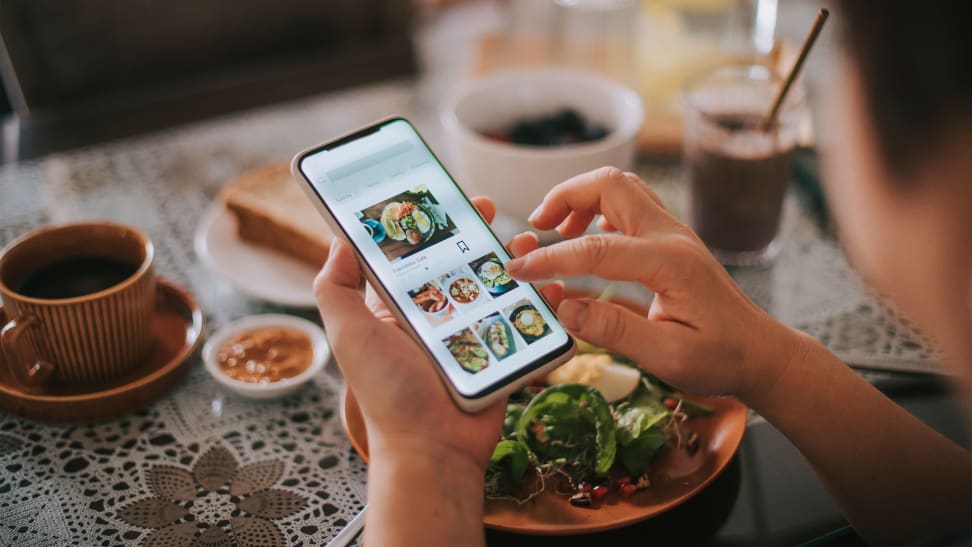 Credit: Getty Images / Edwin Tan
Credit: Getty Images / Edwin Tan
Recommendations are independently chosen by Reviewed’s editors. Purchases you make through our links may earn us a commission.
If you’re looking for ways to change up your diet, you may have considered using an app to build some healthy habits. Using adiet appcan be a helpful way to learn more about what you’re eating and make some lifestyle changes.
Diet apps are less expensive and less time-consuming than seeing a professional dietitian or consulting a doctor, and could be a good option for those who need a hand with self-motivation (and don’t have underlying conditions). Here’s what professionals want you to know about signing up for a diet app.
Diet apps can be a great teaching tool

How do diet plan apps differ from calorie counting apps?
的re are a few different kinds of diet apps, but they work in similar ways. Most offer a food diary to let you track what you eat and often encourage you to eat certain foods, such as nutrient-dense, low-calorie options like fruits and vegetables, and discourage others, such as high-calorie, low-nutrient sweets. Others allow you to track your macro and micronutrients (i.e., the carbohydrates, proteins, and fats in each food) and see for yourself where you might want to increase or reduce your intake.
One classic diet option, WW (formerlyWeight Watchers), uses a point system in which you have an allotment for the day, with the healthier, low-cal foods counting for fewer points (or none at all!) and higher-calorie foods worth more points. A newer diet app,Noom, uses a traffic light system that categorizes nutritious and low calorically dense foods as green (eat in abundance) and high calorically dense foods as red (eat in moderation)—in ourNoom review, Reviewed's executive editor Megan McCarthy found it to be useful and easy to track and categorize the food she ate.
使用一个应用程序可以教育,不管你走al. In an app, you may be able to see your total fiber or iron intake, for example, and find ways to sneak in more nutrients throughout the day. Apps can also be helpful when learning about portion sizes, which can be difficult to visualize. For example, a serving of grilled chicken is 4 ounces, or about the size of a deck of cards or the palm of your hand. When used appropriately, users can learn about their diet and make changes to align with their goals.
饮食应用需要自我激励
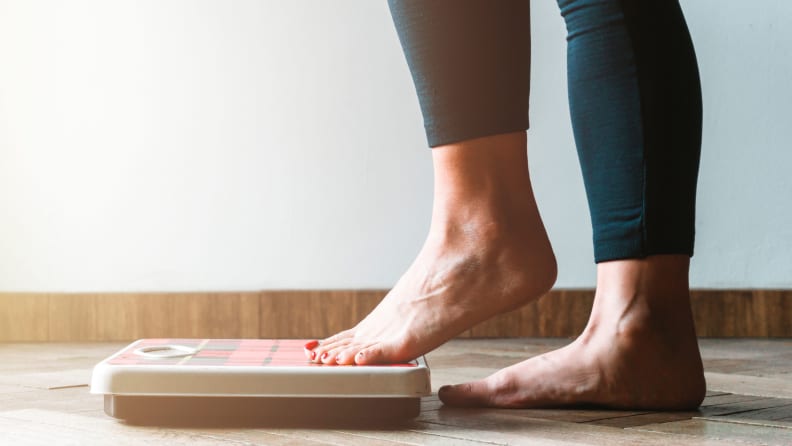
Diets like WW (formerly Weight Watchers) require honesty and consistency.
When making changes to your diet or lifestyle, it helps to ask yourself why you’re doing it in the first place. If you find you have a reason that’s important to you, you may be more likely to stick with the change you’re making. “With any health and wellness change the ‘why’ is really important because your ‘why’ is what's going to sustain you in that change,” saysElizabeth Gunner, RD, a New York City-based registered dietitian. “If the ‘why,’ for example, is ‘I want a flat stomach,’ that might not be as sustainable compared to somebody whose ‘why’ is ‘I want to prevent diabetes because it's something that runs in my family.’”
In herWW review, Reviewed’s deputy head of audience development Rachel Moskowitz says she had the most success with WW when she regularly used it, having fallen off and gotten back on a few times over the years. Any lifestyle change works best when you have consistency, and it's easier to stay motivated when you have a "why" that's meaningful to you.
If you have trouble figuring out your “why,” Gunner recommends talking it through with a professional. “Some of them are deep-rooted,” she says. “We think it's just a surface-level thing, like, ‘I want a flat stomach,’ but in reality, it's deeper. In reality, a lot of times it's ‘I want to feel valued,’ ‘I want to feel loved,’ ‘I want to feel accepted,’ ‘I want to feel worthy.’”
Setting a health and wellness goal as a way to truly care for yourself and not from a place of judgement can make all the difference. “I always tell my clients to come from a place of love and abundance rather than fear and lack,” Gunner says. “If you're coming from a place of true, actual love for yourself, like you would a best friend or a parent, then I think that's already setting you up for more success, versus the self-hatred that oftentimes we go down in order to like ourselves more.”
Diet apps only work if they teach sustainable habits
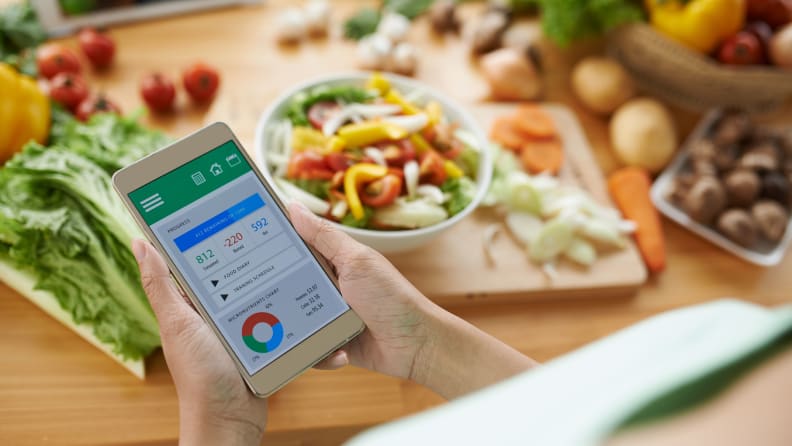
Do diet apps actually work?
Whether you use an app or not, studies show that most“diets” aren't sustainable long-termdue to their restrictive nature, as well as the natural inclination to go in all-or-none. So if you find yourself struggling after a few months—or having some success, then returning to old habits—don’t stress. You’re not alone.
“Most 'diets' don't work because diets are a restriction of either a food group or calories,” saysJessica DeGore, RD, a Pittsburgh-based registered dietitian. “Whenever you cut out a food group, you're basically cutting down a significant amount of calories. So a lot of that weight [you lose] tends to come back after you stop following your diet.”
Smaller changes often work better in the end, if you can integrate them into your lifestyle, which youcanachieve with an app, as long as you give yourself some time (and cut yourself some slack) to acclimate to them. While it may be tempting to choose the program that promises you’ll shed 10 pounds in a month, the diet that encourages you to eat morewhole foodsand up your每天的步数may be the better option.
Diet apps aren’t one-size-fits-all
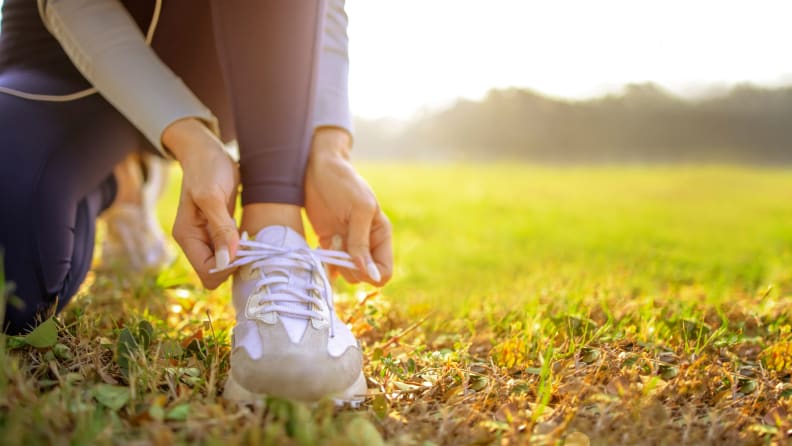
If you need a low-carb diet or low-FODMAP diet, find a program that takes that into account.
With any new diet program you start using, an app or otherwise, think about your needs beforehand. Many diets restrict users to extremely low calorie intakes that aren’t healthy or sustainable. “A lot of apps I've seen will recommend as low as 1,200 calories per day, sometimes 1,500 calories,” DeGore says. “We recommend 1,200 calories for toddlers, so I would never recommend that for a grown adult.” Not only will this heavy restriction not be sustainable, it may do more harm than good in the long run. It can slow down your metabolism, alter your natural hunger cues, and possibly lead to food binges.
Additionally, you may have more specific nutritional needs that an app may not take into account. If you know you need a high-fiber diet for managing diabetes orlow-FODMAP(for those with conditions like irritable bowel syndrome), you should find a program that takes those needs into account.
Diet apps could spell trouble for people with eating disorders

Apps like Noom can help with diet and exercise.
If you find yourself unable to let go of your diet app and its incessant calorie counting—or begin to have obsessive thoughts or guilt about consuming “bad” foods—you may want to reconsider whether this kind of food diary tracking is a good idea for you in general. “Whenever we put a negative label on something or put it on a shelf, we tend to crave it more,” says DeGore. “And that kind of makes us a little crazy and food-obsessed, which I would not consider healthy behaviors.”
Those negative thoughts may include obsessing over food, having anxiety around social settings involving food, or feeling guilt or shame when you break your diet, and having them often could signal you’re developing some disordered habits. “It happens more often than people think,” Gunner says. If you find yourself unable to stop thinking about food, your diet, or logging what you ate, she recommends talking to someone who can help. That can be a therapist, dietician, or a family member or friend.
If you have a history of disordered eating or obsessive exercise habits, steer clear of diet or calorie-counting apps. Additionally, if someone in your family has struggled with aneating disorderyou may be at a higher risk of developing one, so proceed with caution.
Not all diet apps are about calorie counting
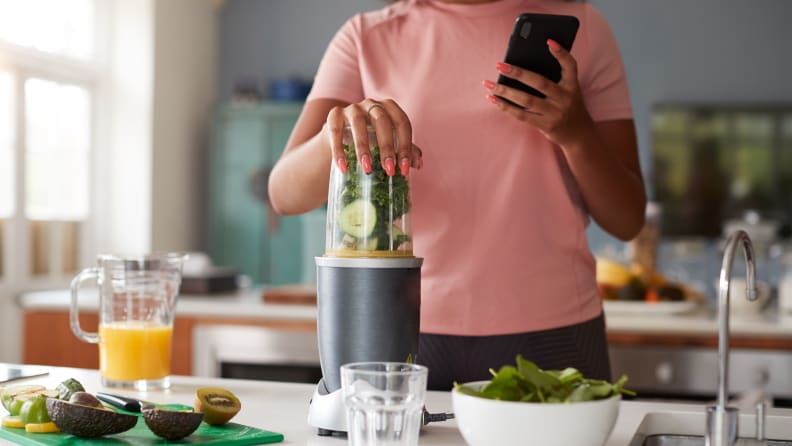
的re are some great free diet apps to consider.
If you’re looking to learn more about your diet, Gunner saysCronometeris a good option (available foriPhone in the App StoreandAndroid at Google Play). It allows users to set custom nutrient goals and track biometrics like blood pressure, blood glucose, cholesterol, and more that may be important to some users.
If you’re looking for a diet app but are worried about obsessing over your numbers, DeGore recommends apps that are less calorie-focused and more mindfulness-centered.Am I Hungry(foriPhoneandAndroid) andAte(foriPhoneandAndroid) are two apps that focus on intuitive eating and building lifelong healthy habits.
的product experts atReviewedhave all your shopping needs covered. Follow Reviewed onFacebook,Twitter,Instagram,TikTok, orFlipboard最新的交易,product reviews, and more.
Prices were accurate at the time this article was published but may change over time.





